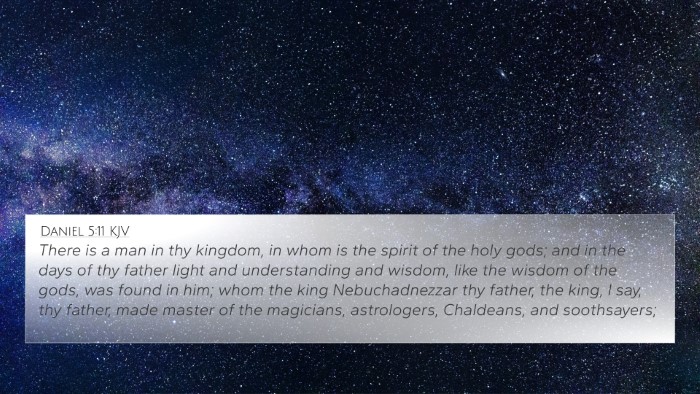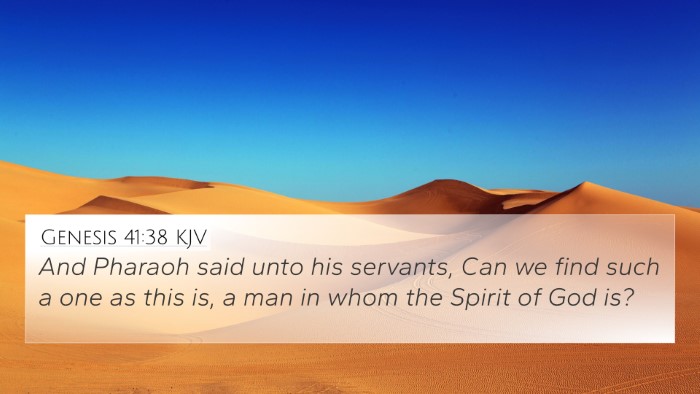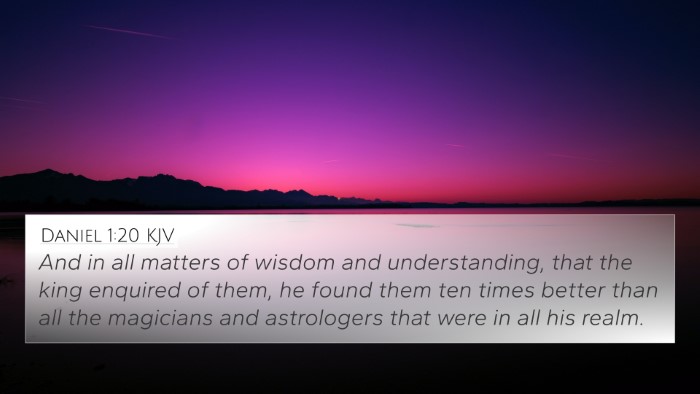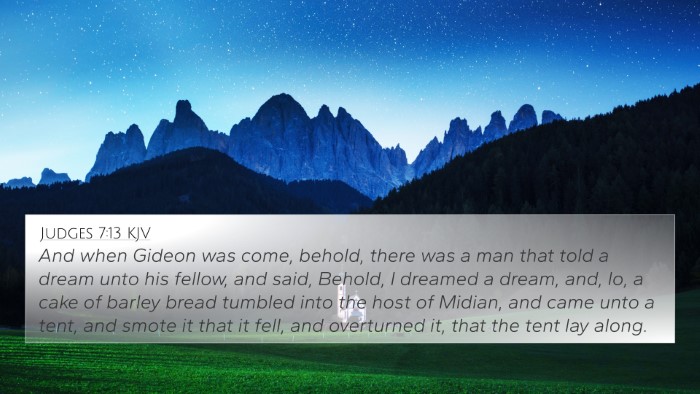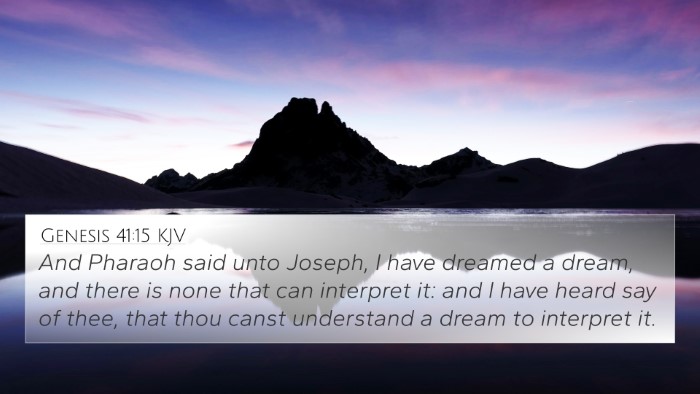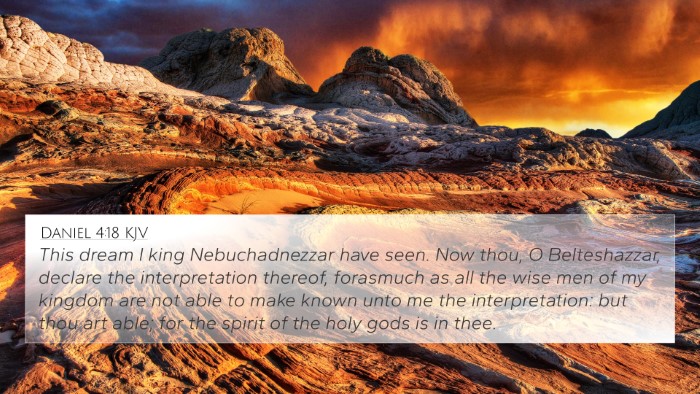Understanding Daniel 4:9
Verse Text: "O Belteshazzar, master of the magicians, because I know that the spirit of the holy gods is in you, and that no secret troubles you, tell me the visions of my dream that I have seen, and the interpretation thereof."
Summary of Daniel 4:9 Meaning
This verse captures a moment of significant interplay between King Nebuchadnezzar and Daniel. The king recognizes Daniel's exceptional abilities, attributing them to the divine presence within him. The context is a troubled dream that left the king anxious. This scene illustrates the broader theme of divine wisdom in contrast to human folly, as well as the importance of God-given insight in addressing life's uncertainties.
Commentary Insights
Matthew Henry's Commentary: Henry emphasizes the obligation of those who possess wisdom and insight, particularly in divine matters. He suggests that Nebuchadnezzar, despite being a powerful king, is humbled and aware of his limitations, seeking counsel from Daniel, whom he regards as a conduit for God’s spirit. This signifies a vital reminder of the divine authority and guidance that believers should seek in interpreting life’s challenges.
Albert Barnes' Notes: Barnes highlights Nebuchadnezzar's acknowledgment of the divine spirit in Daniel, which reflects the true nature of understanding and wisdom. The king’s appeal to Daniel demonstrates the recognition that supernatural knowledge surpasses earthly wisdom, emphasizing the importance of divine inspiration for interpreting dreams and life situations.
Adam Clarke's Commentary: Clarke notes that the title "master of the magicians" indicates Daniel's high standing among court advisers. This recognition stems from God’s gifting, positioning Daniel not just as an interpreter of dreams but as a mediator of God’s revelations. Clarke points out that Nebuchadnezzar’s plea for interpretation underscores the necessity of divine intervention for guidance in turbulent times.
Related Bible Cross-References
- Genesis 41:14-16 - Joseph interprets Pharaoh's dreams, showcasing the role of divinely inspired wisdom.
- Matthew 5:14-16 - A believer’s light in the world parallels Daniel’s role of revelation in darkness.
- Romans 11:33 - The depth of God’s wisdom serves as a background to Daniel’s understanding.
- Proverbs 2:6 - "For the Lord gives wisdom; from his mouth come knowledge and understanding," supporting the theme of divine wisdom.
- James 1:5 - "If any of you lacks wisdom, let him ask of God," inviting believers to seek divine guidance like Nebuchadnezzar did.
- 1 Corinthians 2:12-14 - Discusses receiving the Spirit of God for understanding spiritual truths, akin to Daniel's insight.
- Acts 2:17-18 - Prophecy about God's Spirit being poured out connects with the divine presence within Daniel.
- Isaiah 11:2 - Attributes of the Spirit resemble those seen in Daniel’s life as he provides counsel to the king.
- 2 Chronicles 20:12 - Recognition of dependence upon God for understanding and guidance mirrors Nebuchadnezzar's plea.
Thematic Connections
This verse and its context promote the concept of divine revelation and wisdom. They introduce several themes central to biblical theology:
- Recognition of Divine Authority: Just as Nebuchadnezzar recognized Daniel’s insights, believers are called to recognize the authority of God in their understanding.
- Human Limitations: The acknowledgment of one's need for divine insight is prevalent, reminding readers that human wisdom is insufficient without divine guidance.
- Role of the Faithful: Daniel embodies the faithful servant who intercedes for others, a model for believers in their relationships and community.
- Inter-Biblical Dialogue: Comparing this passage to Joseph's story in Genesis reveals a continuity in God's method of using individuals to convey His will.
Conclusion
In Daniel 4:9, we see a powerful illustration of the interplay between faith and understanding. King Nebuchadnezzar's need for Daniel's wisdom underscores the importance of divine insight in discerning life's mysteries. The call to seek God for understanding is timeless, resonating with themes present throughout Scripture. Further exploration of connecting verses amplifies the richness of biblical themes and enlightens our comprehension of God’s workings in the world.




